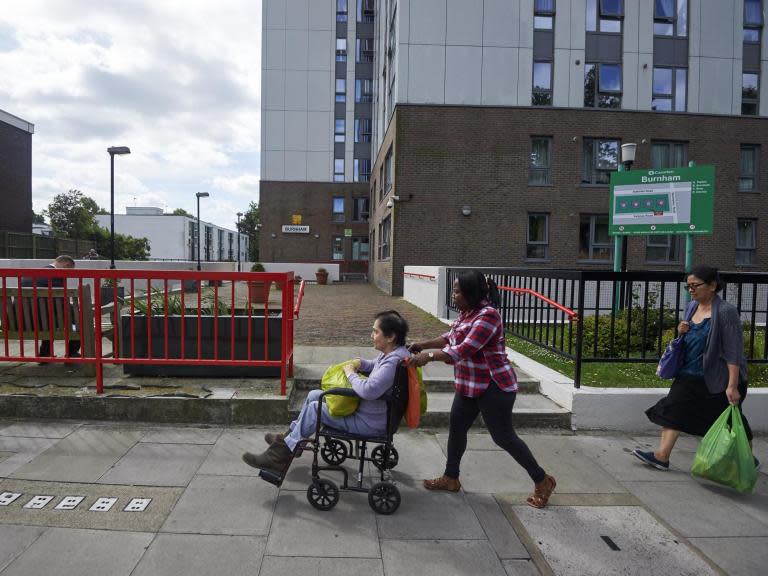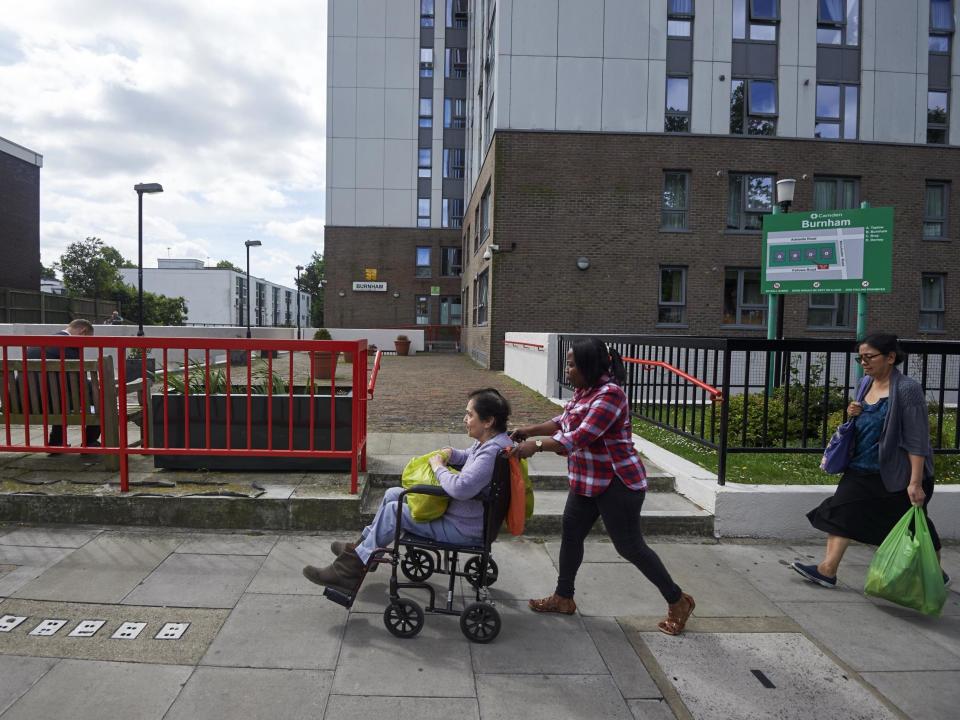Austerity measures and hostile environment ‘entrenching racism’ in UK, says UN
Austerity measures and "hostile environment" policies adopted by the government have “entrenched racism” and “stoked xenophobic sentiment” in the UK, according to a damning United Nations (UN) report.
In research to be presented to the Human Rights Council in July, the UN’s special rapporteur on racism described the “structural socio-economic exclusion” of racial and ethnic minorities in the UK as “striking”.
Tendayi Achiume, who came on a fact-finding visit to the country last year, said race, ethnicity, religion, gender and disability status all continued to determine the life chances and well-being of people in Britain in ways that were "unacceptable and, in many cases, unlawful".
Her report said austerity measures had been “disproportionately detrimental” to people of racial and ethnic minorities.
It also highlighted that these groups were also overrepresented in criminal justice enforcement and underrepresented within the institutions that adjudicate crime and punishment.
In a damning indictment of the UK’s approach to immigration enforcement, Ms Achiume also called for an end to the hostile environment, saying it “relied on private citizens and civil servants to do front-line immigration enforcement, effectively transforming places like hospitals, banks and private residences into border checkpoints”.
She added: “In a broader context of national anti-immigrant anxiety, the predictable result of the UK government’s immigration policy and enforcement is racial discrimination and racialised exclusion. The Windrush Scandal is a glaring example."
The rapporteur said her findings should not come as surprise to the government, as their own data and reports – including the Race Disparity Audit, the Lammy Review, and the work of the UK Equality Commission – substantiated the “persistent exclusion and marginalisation of racial and ethnic minorities”.
The report also points to government data showing that the Brexit referendum coincided with a spike in hate crimes, anti-migrant rhetoric, and racial, ethnic and religious discrimination.
“To be clear, Brexit has not newly introduced racism and xenophobia to the UK – both have a long legacy that extends as far back as the historical European projects of slavery and colonialism,” said Ms Achiume. “That said, national debates and certain practices and policies before, during and after the Brexit referendum in 2016 have amplified racial discrimination, xenophobia and related intolerance in the UK. Public and private actors have played dangerous roles in fuelling intolerance.
“Among them, politicians and media outlets deserve special attention given the significant influence they command in society.”
Chai Patel, legal director at the Joint Council for the Welfare of Immigrants (JCWI), said it was the “eternal shame” of the government that the UN Special Rapporteur had found Britain to be a “hostile environment for all racial and ethnic communities and individuals in the UK”.
“We are in violation of international human rights law because of Theresa May's hostile environment,” he added.
It comes after the UN rapporteur on extreme poverty found that austerity programmes inflicted by successive Tory-led governments were “exacerbating inequality and poverty” across the UK, with policies introduced since 2010 had continuing “largely unabated, despite the tragic social consequences”.
The hostile environment has meanwhile come under intense scrutiny for unfairly targeting immigrants in the UK, particularly following the Windrush scandal in April 2018 when it emerged thousands of Commonwealth nationals had been wrongly targeted by immigration enforcement.
The government has been approached for comment.

 Yahoo News
Yahoo News 

